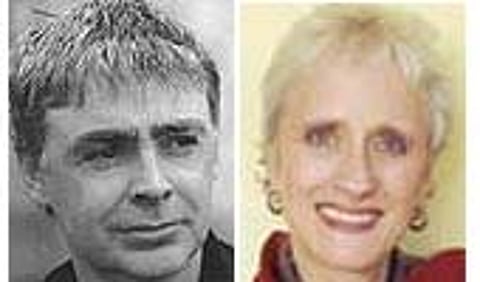Us V/s Them
'Freedom of Expression' was the theme of this year's late September book-fair in Gothenburg on Sweden's west coast, but it might as well have been Islam.


The star guests at the book-fair were writers well known in the English-speaking world—Orhan Pamuk, Julian Barnes, Nadeem Aslam, Frank McCourt, Mahmood Darwish, Eoin Colfer, Sara Paretsky. The only particularly "Swedish" element, if one can call it that, was the liberal offering of platforms to oppressed writers from around the world or to those who because of their cultural backgrounds and their writing might have something to say about multiculturalism.
The Swedes take their role as protectors of civil liberties very seriously and there is something undeniably moving even if faintly symbolic about seminars involving a writer from Nagaland living in exile in Scandinavia, or a panel of Dalit writers, or outspoken women journalists from the Middle East. The ‘Freedom of Expression’ theme, however, gave the book-fair a bit of an "us and them" tenor. Sitting in well-appointed seminar rooms, listening to the Dalit painter Savi Savarkar thundering against Brahmin oppression or the Zimbabwean writer Chenjerai Hove talking about how he was constantly shadowed by enemies back home, one starts to get the absurd feeling that the world is in a state of siege and that surrounding this island of civility where people are free to speak their minds lie oceans of barbarism.

Pamuk displayed a strongly individualistic unwillingness to have his choices used as the basis of conventional generalizations about how we should respond to oppression and dislocation. But there remained a gap between the logic of personal choice and the general rule. The question—does freedom of expression have a limit?—continued to trouble seminar discussants. Representatives of organisations set up to protect freedom of speech like PEN or the International Cities of Refuge Network pointed out how in Europe laws that were put in place to penalize the expression of anti-Semitic or sexist sentiments are now, in their extremity, in danger of curbing freedoms in the opposite direction. A case in point is the historian David Irving who denies that the Holocaust took place. Discussants felt that it should be possible to disagree with Irving without criminalizing or demonizing him. Pamuk, in his characteristically acerbic fashion, also made the point that the need to protect minorities from abuse could often lead to governments patronizing them. ‘Why are minorities treated like idiots?" he asked. Why is it the case that remarks that would not be considered offensive for majority groups should be censored when directed at minorities?

The British-Asian poet, Imtiaz Dharker, added a further dimension to this discussion when in a separate seminar she talked about self-censorship. One is caught between fundamentalist Islam and Islamophobia and there is the danger that you will start censoring what you want to say for fear that it will be seen as coming from one or another of these positions.
Ali is under death threat for the script she wrote for Dutch filmmaker Theo vanGogh’s Submission on the oppression of women in Islam, a film he was murdered for. She is a critical insider—a Muslim woman radically rejecting both fundamental aspects of the Koran and interpretations of Koranic law. Yet inevitably she is also a Westerner—someone who has sought asylum in Europe, who uses channels of western media to express her views on Islam, who has recently joined the conservative Washington-based think-tank, the American Enterprise Institute, who has western bodyguards protecting her, and who talks about Islam in terms that are intelligible to the West. Ali has been called a female Salman Rushdie and Rushdie has endorsed her memoir—The Caged Virgin—which was under discussion during the seminar. But she has none of the novelist’s sense of irony or playfulness to fall back on. She can only be earnest, and being earnest has its pitfalls. Ali calls for a process of reformation within Islam but what she actually symbolizes is the now almost seductive idea of conflict between Islam and the West.

That it is dissidents rather than reformers who appeal to an imagination constantly fed on snapshots of fundamentalist Islam was clear from the mood in the packed auditorium. Gardell felt that Ali’s book over-simplified Islam, that there were voices within the ‘Muslim Brotherhood’ which strongly opposed events like 9/11, voices she had chosen to ignore, and that she also ignored the fact that everywhere in Europe Islamophobia was on the rise. While the audience booed Gardell (in the polite, murmuring way in which Swedish audiences would!), Ali tied herself up in knots. She had started out by berating the West for throwing out the baby with the bathwater and implying in their criticism of Islam a rejection of Muslims, but later said the opposite—Muslims ought not to believe that the West’s criticism of Islam amounts to a rejection of them as a people. Ali said that one constantly sees images of Muslims protesting against things like the Danish cartoons but never against acts of terrorism; Gardell pointed out that moderate Muslims voices are given short shrift in the media. There seemed to be no scope for nuance and Ali had the last word. Islam is not under attack, she said. The worst attackers of Islam are Muslims themselves.

Anjum Hasan is a poet and programme officer at India Foundation for the Arts,Bangalore
Tags